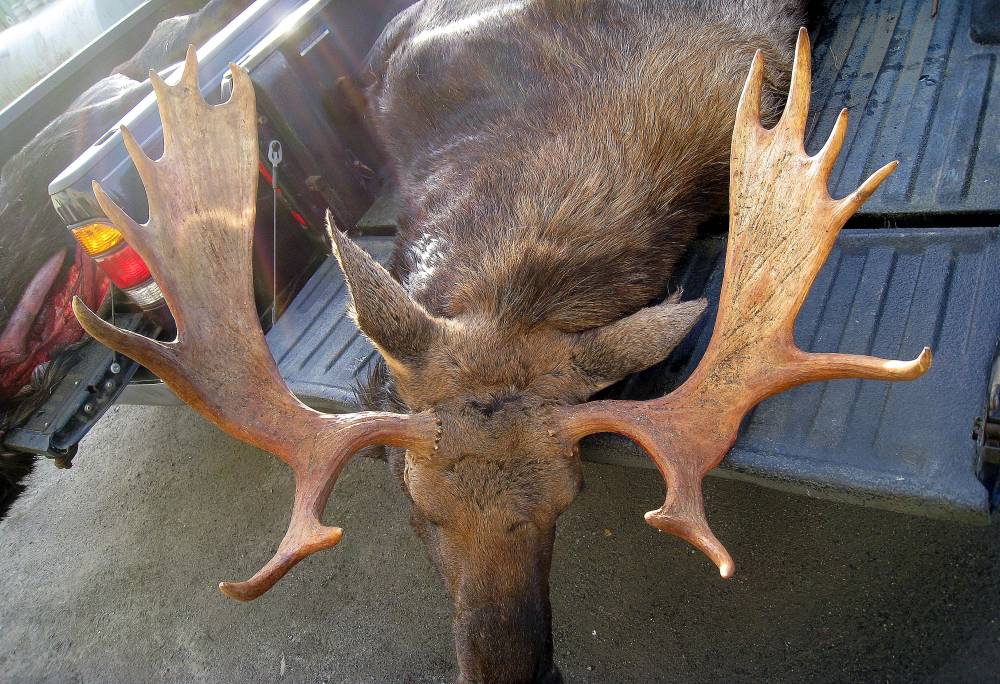
This bull moose was shot in 2016 and qualifies as a legal moose under the state’s antler requirements for the hunt in central Southeast Alaska. (Photo courtesy of ADF&G)
The state’s Board of Game Saturday voted down a proposed change to moose hunting seasons in Southeast Alaska.
The proposal was for the entire region. Proponent Harold Martindale asked for a shortened season for the first two weeks in October and allowance to harvest any bull moose. He aimed to address the number of illegal moose shot in the region.
There are different seasons and antler requirements throughout Southeast. Near Petersburg and Wrangell the season is a month-long, mid-September through mid-October and there are antler restrictions for moose that are legal to shoot. Alaska Department of Fish and Game staff reported that a little over eight percent of the moose shot do not meet those antler requirements. That percentage is lower than in other moose seasons in Alaska with antler restrictions.
Many hunters testified that they liked the month-long season and thought the antler restrictions were working to build up moose numbers. It can be difficult to determine if a moose’s antlers meet the size or configuration required during the hunt.
During public testimony, former game board member Dave Brown of Wrangell urged the board to keep the status quo. “We have breeder bulls living through the rut from year to year and the population’s showing that,” Brown said. “As cumbersome as it is, it seem to work, the horn restriction. If you open it to any bull it just shortens the season and makes it more of a derby.”
Fish and Game thought that changing to any bull moose in the Petersburg area would greatly increase the harvest and result in a derby-style season lasting only 5-7 days.
The moose population in central Southeast is thought to be increasing and has expanded its range throughout the islands around Petersburg and Wrangell. The board voted down the moose season change by a 6-0 vote.










